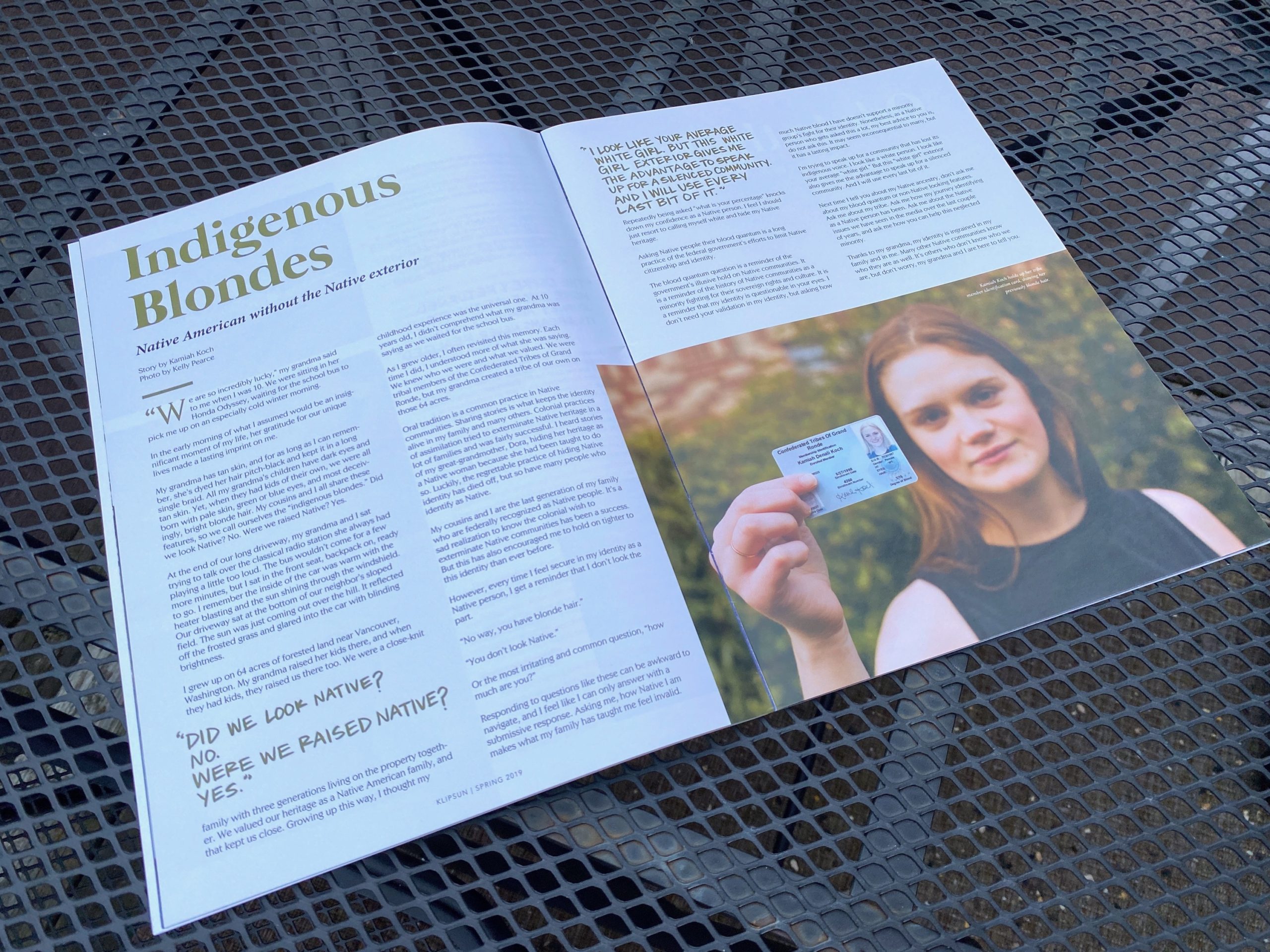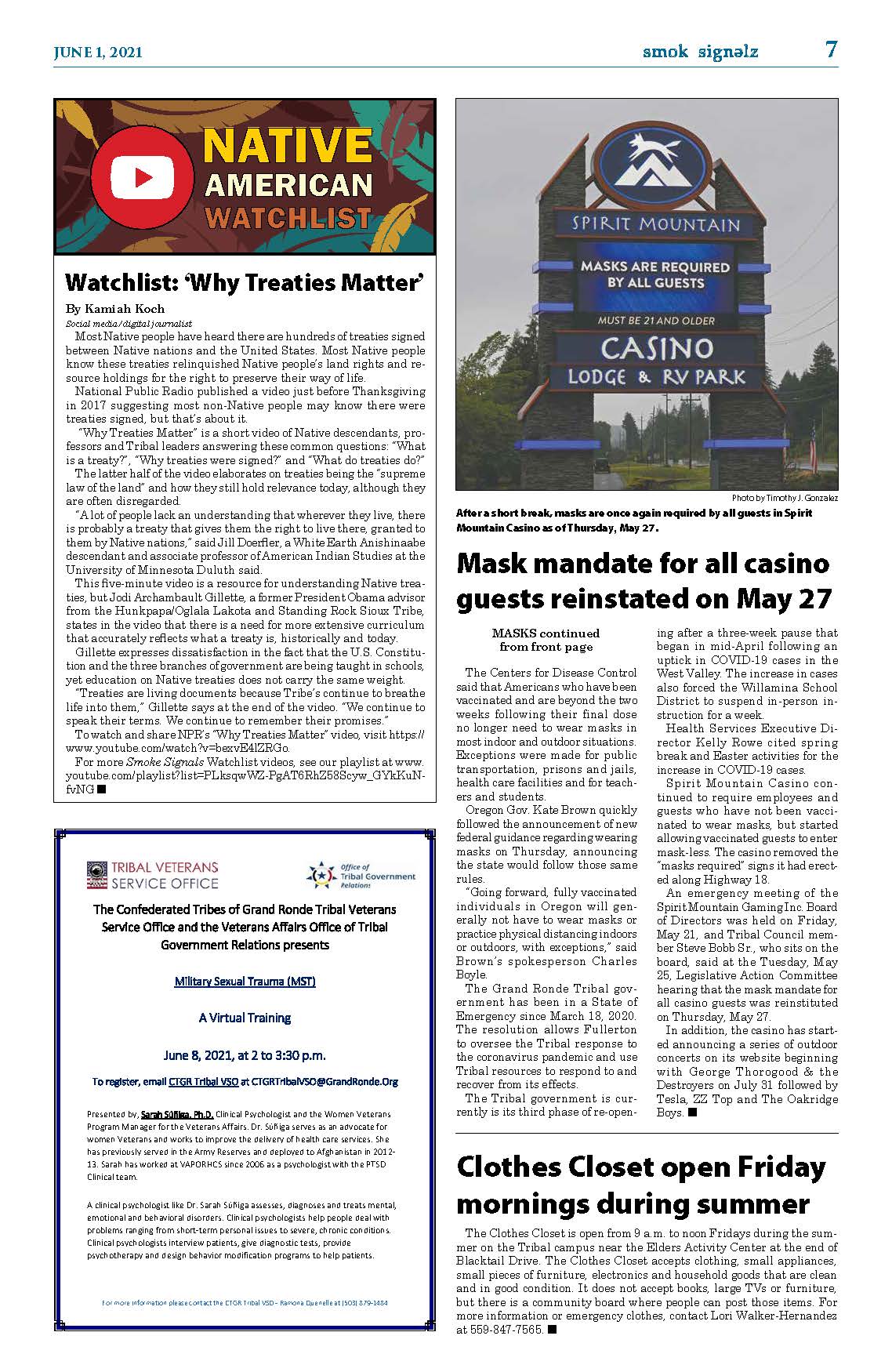Alumni Spotlight: Kamiah Koch

How this WWU graduate began working for her tribe’s newspaper.
By Jaya Flanary
Two years ago, Klipsun magazine printed “Indigenous Blondes,” a personal story that caught my eye because of its featured photograph: a WWU student holding her tribal identification card, with a picture on it of her with bright blonde hair.

The student—Kamiah Koch—wrote about her experience growing up in Vancouver, Washington, one and a half hours away from her tribe’s reservation. “We were a close-knit family with three generations living on the property together,” she wrote. “We valued our heritage as a Native American family, and that kept us close.”
And later, “I look like your average ‘white girl.’ But this ‘white girl’ exterior also gives me the advantage to speak up for a silenced community. And I will use every last bit of it.”
Koch is a member of The Confederated Tribes of Grand Ronde. The tribe helped her financially when she attended WWU as she double-majored in Journalism (Public Relations) and Communication Studies.
Before graduating in 2019, she moved back home to intern at Willamette Falls and Landing Heritage Area Coalition, where she did PR, social media and outreach.

During Koch’s time in school, she regularly received her tribe’s bimonthly newspaper, Smoke Signals. Though she never considered applying for a job there, her mom encouraged her to do so when the organization was looking for a digital journalist.
“My mom was just like, ‘you need to apply for this. This is awesome,’” Koch said. “So that’s what I did. I applied and moved to Oregon, I think three weeks after my interview. So, it was pretty quick.”
Because of the tribe’s financial assistance during her college career, she thought that applying her journalism skills to Smoke Signals would be a great opportunity to give back to them.
“I thought it’d be really cool to come down and see what life is like down here,” Koch said.
She now lives in McMinnville, Oregon, about 30 minutes away from the reservation, which she commutes to for work. Though her degree is in public relations, she has taken on a visual journalist role for Smoke Signals, producing videos and podcasts while managing social media. Throughout the pandemic, the staff has worked remotely and in the office, but continued printing.
All of Koch’s interviews were on Zoom or over the phone, but she had more time than usual to work on stories—including videos—because of COVID-19. This allowed her time to learn more about visual storytelling, which Smoke Signals has been accommodating and supportive of, according to Koch. Recently, she participated in NPR’s Next Generation Radio Project, which is a week-long digital journalism training project that teaches young journalists how to make multimedia stories.
“It’s been such a cool time to learn how to do video editing and podcasting and it’s something I think I would like to continue on with my career,” Koch said. “I really enjoy going out and telling stories visually. The creative thing I was looking for in PR, I think I found doing this. So, I just feel really lucky that I have a job to help me grow that skill.”
Recently, Koch conducted her first in-person interview without wearing masks because of the new CDC guidelines for vaccinated people. She looks forward to covering more events, such as powwows, next year.
“It’s just nice to have things kind of go back to normal and have events happening and get back to what I came down here for, which was being close to the tribe and getting to know the tribal people,” Koch said.
